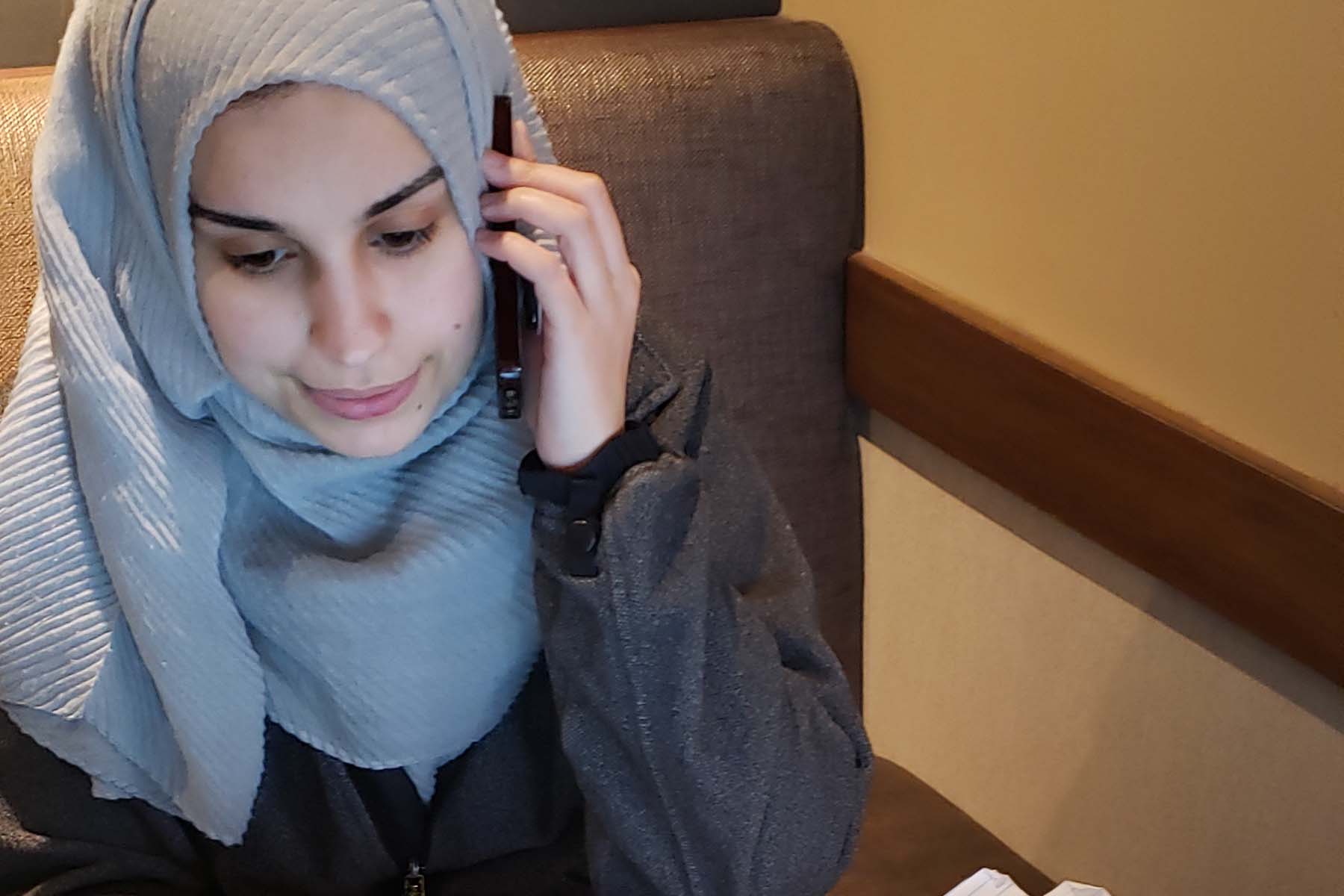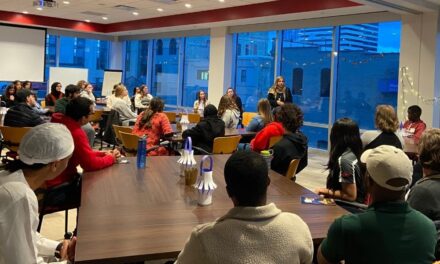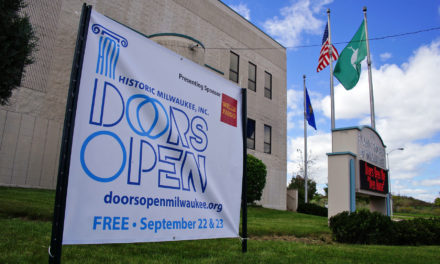The ISM CORE Youth Hotline went into operation last November and since then has served more than 50 young people in answering key questions about their faith.
However, despite the name, the Youth Hotline is not a 24-hour answering service responding to mental health emergencies. Initially, Ayatt Askar, the hotline’s volunteer coordinator, was answering every call. But “for one thing, I have a job,” said Askar, 26, the director of Ohana Family Services, a third-party, family-reunification agency. She told Ameer Hamza, the ISM imam and youth leader who founded CORE and is responsible for creating the hotline, “as much as I would love to answer these phone calls, it’s . . . better if I leave a voicemail and ask them to send a text message.”
And that method turned out to be well-suited to the hotline’s users as well. “They can just file their questions,” said Imam Hamza. Askar, he said, “doesn’t answer any questions at all, she flags them. I’ll answer the questions” along with ISM West Imam Noman Hussein. “We both have things going on,” Hamza said, “and we want to get to a point of efficiency where we can answer all questions within 72 hours.”
The Youth Hotline’s purpose, Hamza said, is primarily to address questions about Islam. “One of the things that is often an obstacle for young people is that they have certain roadblocks in their faith,” he said, “and if these roadblocks are not removed, they don’t make progress.” The Youth Hotline, he said, gives “young people a platform to address their problems and concerns. They genuinely have questions, some of them even have doubts and these have to be dispelled.”
The hotline seems to be meeting a need. “There’s a lot of controversy, especially in this day and age, with the western culture being mixed in with the religious culture,” Askar said, “a lot of question marks in the air.”
She pointed out that “When the youth sit in front of a speaker, their favorite thing is Q&A. Having this hotline, whenever they have something going on, they can just shoot their questions over to the hotline
instead of waiting for a Q&A session.”
The Youth Hotline number was created through Google Voice to allow questioners to maintain their anonymity. It “gives young people a platform that is judgment free and anonymous,” said Hamza. “They don’t have to worry about meeting the imam face-to-face nor backlash from authority figures.”
Note
ISM CORE Youth Hotline: Anonymous. Confidential. Safe. Ask anything. 414-215-9320
ISM CORE mission: “Inspiring Commitment”
CORE: Committed, Oriented, Righteous, Educated
Askar said that the hotline has already had “a lot of very, very interesting questions,” about relationship problems with parents who may not be following the faith in the way the young people are being taught. Or, “teen-agers ask questions about drugs and is that effective in their day-to-day religious life.”
She said that “one of the common questions we get is [about] gender relationships in Islam. As a Muslim, we aren’t allowed to date each other, so there’s a lot of questions about the boundaries when it comes to being with the opposite gender.” Young professionals may want to know the proper etiquette for “going out with co-workers and what not. Just basic boundaries” of being out in public “with the opposite gender in this culture,” Askar said.
Askar’s job is to separate the questions into two categories – spiritual health and mental health issues. Mental health questions are forwarded to community mental health professionals, including “doctors, psychologists, MCHC counselors,” she said. However, Askar added that, “We haven’t had many mental health questions at all. Nothing suicidal. We had maybe one that had a question about [self-harm].”
Young Muslims hear about the Youth Hotline at Hamza’s talks and on Instagram and Facebook. The hotline number received “a whole bunch” of calls when it initially opened in November, Askar said. They were “just bombarding me. People are seeing it as a way to answer their questions and get more clarity.”
One of Hamza’s duties is to provide “a few words of inspiration,” after nightly prayer, talks which he said are “primarily focused on manners.” His goal is to help people avoid “this theoretical, metaphysical religious discourse,” in which “they’re not very polite” and “end up coming across as jerks.” He and the other ISM leaders “wanted something that focuses immediately on behavioral improvement,” he said, also known as Adab and Akhlaq, manners and ethics, in Arabic.
The text on which these talks are based “goes back to the third century of Islam,” Hamza said. Like the Youth Hotline and Hamza’s other work with Muslim youth, it’s about “how you become the best version of yourself.”
In the meantime, word about the ISM Core Youth Hotline has begun to spread. Recently a board member from a major Islamic center in Dallas reached out to Hamza. “They wanted to know how the hotline works so they can start something like that in their own community,” he said.















